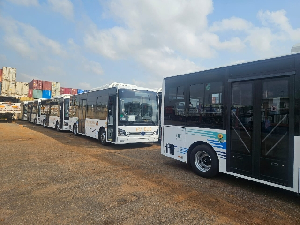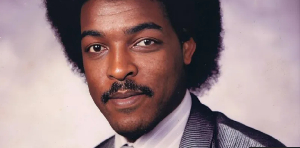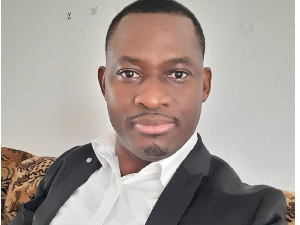One thorny issue which has come up for discussion in course of the 23rd anniversary of the June 4 1979 Uprising is the execution of eight senior military officers, including three former heads of state.
Could the executions have been stopped? Were they given adequate trial opportunities?
The architect of the Uprising and chairman of the then Armed Forces Revolutionary Council (AFRC), Flt. Lt. Jerry John Rawlings has conceded, “I had no choice.”
In this book, Ghana Peace and Stability, one of Ghana’s most experienced intelligent officers, Kofi Quantson quoted Rawlings’ rationale for the executions as “I had no choice.” Either that or you and I will not be talking this morning. All of us, plus innocent people, would have been dead by now.”
The Dispatch published a response from the number two man and spokesman for the AFRC, Major Kojo Boakye-Djan (Rtd), a reaction to the assertion by Rawlings that he had no regrets about the executions.
“I have read with dismay the reported remarks by Rawlings, the then chairman of the AFRC that he has no regrets for the executions during the 1979 June 4 armed uprising in Ghana.
For the past years, I have had numerous occasions to talk and write about the AFRC affairs and in particular about those executions. On behalf of the AFRC members, functionaries and particularly those voiceless participants who are still serving in the Ghana Armed Forces, I have consistently reported that those executions were regrettable but unavoidable, given the circumstances in which we had to operate and both the moral and legal procedures for the executions that we had to use.
For the avoidance of any doubts those officers were executed for their ultimate responsibilities for illegal acts (high treason) of removing from office constitutionally elected civilian governments in 1966 of Kwame Nkrumah and in 1972 of Kofi Busia; sustaining successor military regimes in office which were unaccountable to Ghanaians in their corrupt and/or murderous conduct of national affairs; and finally allowing themselves to personally profit from those regimes or allowing their agents and cronies to do so.
It is instructive to note that today these crimes are enforceable under international and most national laws. The current Constitutional has entrenched it. In South Korea, the Generals who found themselves in a similar position to those we executed in Ghana have recently been sentenced to death. The British House of Lords has offered a similar ruling against General Pinochet of Chief for overthrowing the elected government of Allende.
Rawlings and for that matter informed Ghanaians cannot claim to be unaware of our legal and moral approach to these executions which have both local and international force of law and irreversible implications and lessons for civil plural democratic rule in Ghana. There was nothing personal about the executions. We all shared then as we must now share both the collective responsibility and deep regret for the loss of those lives, however necessary and unavoidable they were.
We find it so very curious that after turning his back on the principles of June 4 and launching his 31st December 1981 military takeover of the civilian administration of Limann almost seventeen years ago, Rawlings even had the need and the courage to clothe himself in the glory and protection that he hopes only June 4 can give him. For the principles behind the June 4 Uprising and the 31st December 1981 coup are mutually distinct and exclusive.” To commemorate the 23rd anniversary of the June 4 Uprising, the retired Major has released a statement.
In the statement, Major Boakye-Djan said, “For the need to draw the line between AFRC and PNDC and accept the example of June 4, as a legitimate means of defending the Constitution today is also a constitutional duty for all Ghanaians.
In the defence of the 1992 Constitution, section 3 (3a) outlaws the overthrow of the Constitution on the example of PNDC as a commission of high treason punishable by death, an existing legal provision that guided the AFRC in its administration of criminal justice in 1979.
Following from this section 3 (4) and (4a) of the Constitution expressly provides that “all citizens of Ghana shall have the right and duty at all times” to defend this constitution against its overthrow.
Clearly, the NRC has a mission to clarify the situation as a constitutional duty. And that they should not allow themselves to be distracted by any attack on the sustainability of its members.
“I find nothing wrong with either the total or the individual membership of the commission. As I see it they are all individuals of proven ability who have risen to the highest pinnacle of their specialized careers and in the process have developed highly honed-in skills and will be required in the handling of cases that will be brought before them. For the commission will be nothing more than an exercise in the establishment of truth and justice. And that those who have truth and justice on their side need not worry about the commission or its membership.
It is against this background that I am today serving notice of my intention to start campaigning for an erection of a constitutional monument to honour all those who have become victims of the overthrow of constitutional governments in our history from 1966.
The list will be headed by president Kwame Nkrumah -the first Republic, President Akuffo-Addo and Prime Minister Busia of the Second Republic and their associates and their followers on the one hand and all civilians and military personnel on the other, who lost their liberty, assets and life resisting the overthrows of constitutionally-elected governments in Ghana since then.
I am therefore taking this opportunity in my capacity as the former deputy chairman of the AFRC and its official spokesman, on the occasion of June 4, to appeal to Ghanaians to prepare to support the project in the discharge of their constitutional rights and duties and which I shall start on my final return to Ghana soon,” Major Boakye-Djan (Rtd) stated.
General News of Friday, 7 June 2002
Source: Daily Dispatch
"I had no choice" - Rawlings
Entertainment















